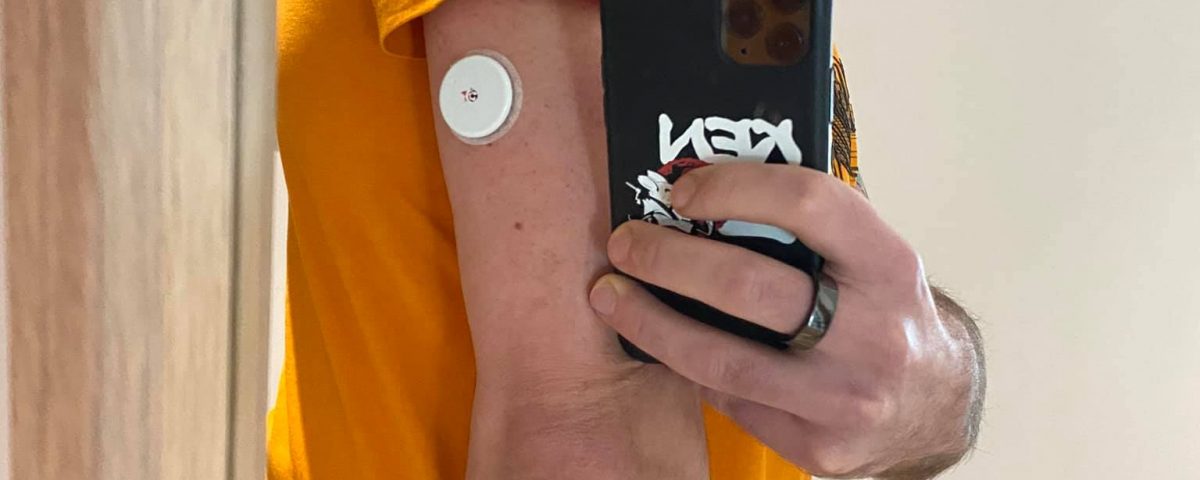My Personal Blood Glucose Experiment Update: Part 2
My Personal Blood Glucose Experiment Update: Part 2

You might have read my last update and if you haven’t, no sweat.
As I spoke about in the last update, blood glucose control isn’t just essential for diabetics,
Millions of people have very poor blood glucose management which is resulting in them having…
- Brain fog
- Poor Memory
- Gut Issues
- Nerve issues and much more.
Many in the fitness space believe there is little that can be done to stabilise or affect blood glucose as its regulated so tightly by the body.
(that’s cute, maybe that’s why they should stick to bicep curls in the rack).
Anyhoo, the body DOES regulate blood glucose via hormones like insulin (brings it down) and glucagon (brings it up),
yet as with anything to do with the body, there is a lot of nuance that is involved.
For instance, If your gut is messed up, you struggle with IBS or other gut issues…
..how you manage glucose will be compromised.
Did you know that?
The balance of the gut (microbiome) helps to regulate not just glucose levels but hormones & neurotransmitters also.
Next, people think that when their fasting glucose is ok (4.4-4.9) then they are ok. Not true, we have to see how people respond to meals.
Hint, if when you eat food it changes the way you feel – blood glucose problems are present.
So if you get angry or irritable going long periods without food, or you get fatigued after eating, its a problem.
So knowing all that, I want to always optimise my glucose management.
As someone that had a previous autoimmune disease of the gut, glucose control has always been an issue for me and was more prone to insulin resistance.
So, I bought a 24 hour constant glucose monitor (CGM) and attached it to the back of my arm.
As I am focused on neurological work right now I am on a strict ketogenic diet.
And no, its not for weight loss (lolz).
Ketogenic diets have a good amount of literature behind them to help alleviate neurological inflammation.
So, of course my blood glucose was not going to have spikes like if I was carb adapted,
yet I did notice some very interesting trends.
1. High glucose levels for 5 days after a higher carb day.
That’s right, 1 day out of 30 i choose to have a Pad Thai and a GF brownie.
I did 20,000 steps that day and a small cardio based workout to help shuttle glucose into the cell. I had a short elevation after meals to 8.1 and before bed it had dropped to 5.1.
My personal average is 4.2 -4.4.
However, for 5 days after that 1 day, I couldn’t get my blood glucose down below 4.9 – 5.1.
Essentially 1 day cost me 5 days of progress so to speak.
This is a mistake I see in many that don’t progress on the approach that they take.
Keto is VERY restrictive and even harder to do right.
That’s why I don’t recommend it outside of people with quite severe neurological / autoimmune issues.
2. People are slowly becoming diabetic I have clients that have told me that their numbers are fine (as that’s what their doctor told them).
Nearly never happens…
I either see high average glucose fasted and 90% of the time see people with too large elevations around meals.
If you can’t control the amount of glucose to bring it down, you are walking a slippery tight rope of health problems.
That brings me to point 3.
3. Have a glucose number above 5 most of the day.
I find in clients that their average glucose is over 5 for a majority of the day and night. Its bad news.
- Higher blood glucose levels has been shown to mess with many things like…
- Red blood cell health (think oxygen)
- Nerve Health
- Brain inflammation
- Obesity etc
Its imperative that you can get your glucose levels between 4.4-4.9 ideally.
Of course if you are eating carbs there will be elevations around meals but you want them to be below 6.1 ideally.
Peaking levels will often be 1 to 1.5 hours after a meal.
4. Time Carbs Better.
I am not against carbs, in fact its totally possible to have perfect blood glucose management and eat 300g of carbs a day.
But and its a BIG but…most people that come to me don’t have the health to make this work well. Thus, understanding a couple of things is important.
1. You are naturally more insulin sensitive in the mornings as you are more active.
2. Exercise helps to manage blood glucose through a non insulin dependent pathway.
Thus, being smart with carbs is a good idea for your brain.
5. Glucose levels make or break sleep.
If you can’t stabilise your glucose levels, you will be likely to suffer with.
‘I can’t fall asleep’
‘I can’t stay asleep’
‘I wake up knackered all the time’
It’s a little complex but your brain needs a lovely flow of glucose throughout the night, because ranges are kept so tight, the smallest drop sends a signal down the spinal column to trigger a stress response.
That’s stress response blocks your sleep hormone and you wake up.
Not cool.
Thus, fix your blood glucose and sleep like a baby ![]()
So, these are my main takeaways for you and trust they are helpful.
If you are interested in getting this issue fixed with my personal help, we have a 1 month intensive that we are letting people join this week.
We’ll not just fix your blood glucose issue with science (so you can have great energy and avoid sleeping all afternoon).
We will also show you how to perfect sleep, reduce your stress and overwhelm…
…and wake up feeling like you are ready to crush the day.
So really, we’ll help you get what usually takes you 2 days, done in 2 hours.
That’s the power of Brain Fix.
Want details?



